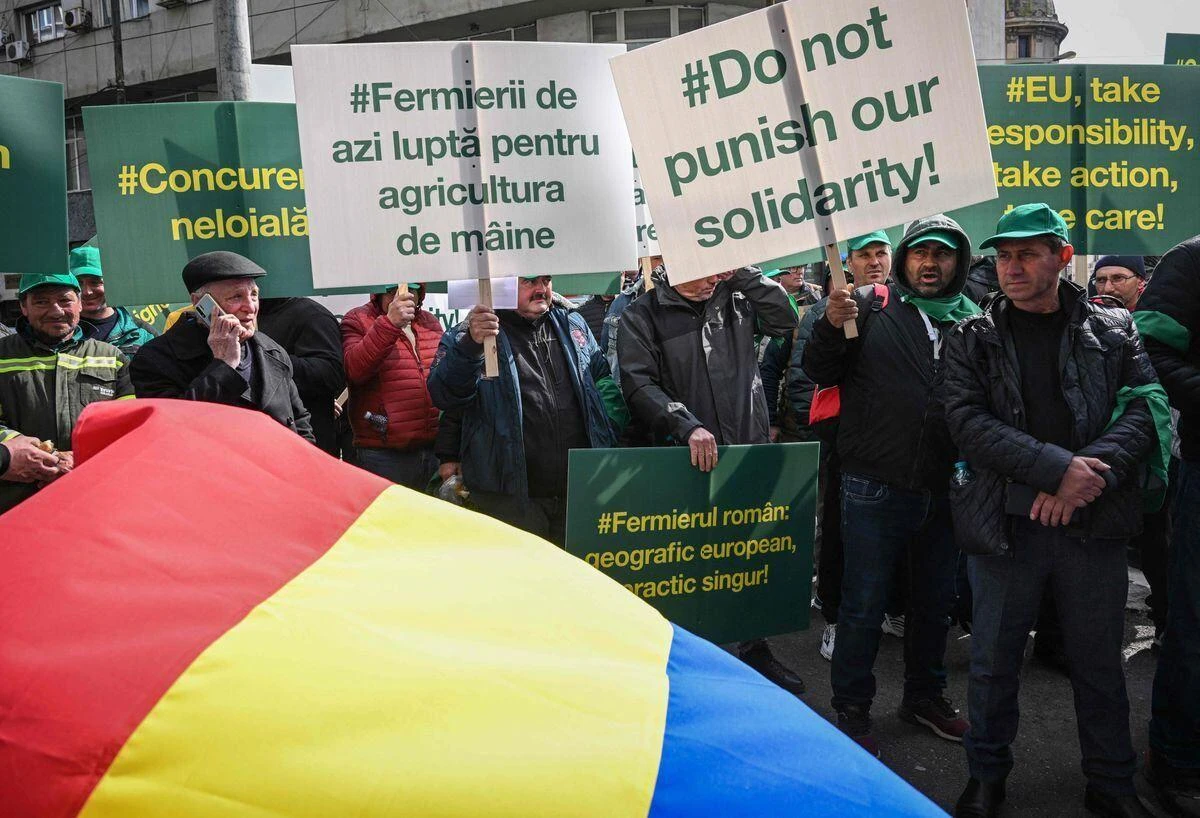Truck drivers and farmers hand in hand against tax rates in Romania

Romanian truck drivers and farmers continues their protests for the fifth consecutive day, causing disruptions in traffic around several cities, including the capital Bucharest
Romanian truck drivers and farmers on Sunday continued their protests for the fifth consecutive day, causing disruptions in traffic around several cities, including the capital Bucharest. The demonstrators expressed a range of grievances, from high tax rates to delayed compensation payouts.
In a coordinated effort, protesters also gathered at border areas, temporarily blocking the northeastern border with Ukraine. Truck drivers voiced concerns about exorbitant insurance and tax rates, as well as lengthy waiting times at border crossings. Meanwhile, farmers demanded faster processing of subsidies and compensation for those affected by drought or disruptions caused by the import of Ukrainian cereals.
Farmers lamented losses over the past two years due to the influx of cheaper grains from Ukraine, as highlighted in a video posted on Facebook by the protesters. The Black Sea ports in Romania, particularly the port of Constanta, have become crucial hubs for the transit of Ukrainian grain following Russia’s blockade of Ukraine’s seaports.
The protests originated on Wednesday when dozens of trucks and tractors, inspired by similar demonstrations in Germany, began converging on Bucharest from various cities, deliberately traveling at slow speeds.Despite attempts to enter the city, Bucharest authorities denied access, citing a lack of authorization for the protest.This development also prompts the question of whether far-right extremists may seek to leverage the protest for their own purposes, as seen in Germany
Following discussions with the ministries of agriculture and transportation on Saturday, protesters engaged in talks at the finance ministry on Sunday, but no agreement was reached. Farmer Danut Andrus emphasized the severity of the situation, stating, “There are rules that we can no longer bear.” He highlighted the challenges in obtaining bank loans, declaring that they are no longer considered bankable and lack the ability to operate effectively in the country.
Protesters vowed to persist until authorities acknowledged their grievances and demonstrated competence in managing the country. Similar sentiments resonated in Germany, where farmers initiated protests against Berlin’s plans to cut tax breaks for agriculture. German farmers employed tractors and lorries to block roads nationwide, including in Berlin city center.
Meanwhile, in Poland, farmers have been blocking border crossings into Ukraine since November, expressing dissatisfaction with “unfair competition” from Ukrainian counterparts and the relaxation of access rules to the European Union for Ukrainian firms. The unrest among European farmers underscores the broader challenges facing the agricultural sector in the region.
Source: AFP



